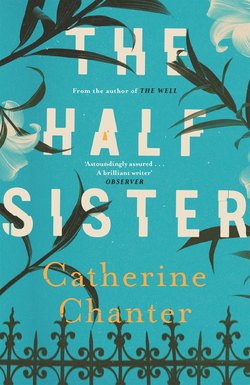Читать книгу The Half Sister - Catherine Chanter - Страница 22
На сайте Литреса книга снята с продажи.
ОглавлениеChapter Fifteen
That night was difficult. Clutching duvets, candles, food, bottles of water, they struggled back to the coach house, asylum seekers of sorts, and as if to ensure they were not mistaken for the dead they both slept fitfully although the boy seemed virtually unconscious; Edmund said he used to sleep for hours and hours, never wanting to wake up.
In the morning, the spring storm has passed but left in its wake a thin drizzle, greyness creeping soft-sandalled into the main house. The gash in the landing wall has allowed rain to splatter over the carpet and Edmund feels the splintered edges of the oak panelling and its violated passage and tests his weight on the floorboards, then he leans out over the edge, the rubble like rocks on a beach beneath him, strewn with the coloured clutter of day trippers who have swum out to sea and never returned. The remains of the spiral staircase are crazy – Escher architecture going nowhere – and somewhere within him is a dizzying desire to follow their lack of logic and plunge. Stepping back sharply, he catches hold of the banisters behind him. He phones John, hears his own voice sounding unreliable when Valerie is mentioned, and feels on safer ground asking for help with boarding up the gap.
‘I would wait,’ Edmund says, ‘but it’s too dangerous with Mikey here. Anything could happen. Oh, and Liam?’ He kicks himself for his thoughtlessness. ‘Is everything all right?’ Liam is fine. John will be over later to make things safe, on a temporary basis, at least.
The council is meant to be sending an engineer to assess the house and the lodge. They are close to the top of a short list because it turns out that for nearly everyone else the impact of the earthquake was little more than slates off the roof and cracks in the brickwork of 1950s extensions and shattered glass in poorly constructed conservatories. Wynhope is a high priority case; there was, after all, a fatality. Edmund is of the view that apart from the tower, Wynhope, structurally at least, looks as resilient as ever; Diana is not sure that the house has ever really put its faith in her, but she is relieved to reclaim it all the same and now she wants the place all to herself.
‘For Christ’s sake,’ she snaps at Edmund, ‘take the boy away from here. Anywhere. He needs some fresh air.’
From the back door Diana watches the two figures, the tall man holding hands with the child, growing smaller as they walk away from her towards the meadows. That is what it would have looked like if they had children. He would have taught his son to shoot, spent even more time tying flies on his river, frittered away summer evenings in the garden bowling overs, and she would have been the mother who didn’t quite get it, not having had hearty brothers who went to prep school or jolly fathers who drove the horse box to pony club. Well, they were right to have agreed no children; it would have changed everything, and, besides, an aversion to family life is something they have in common: one with parents who loved too much, the other with parents who loved not enough or not at all, or at least not when it mattered.
